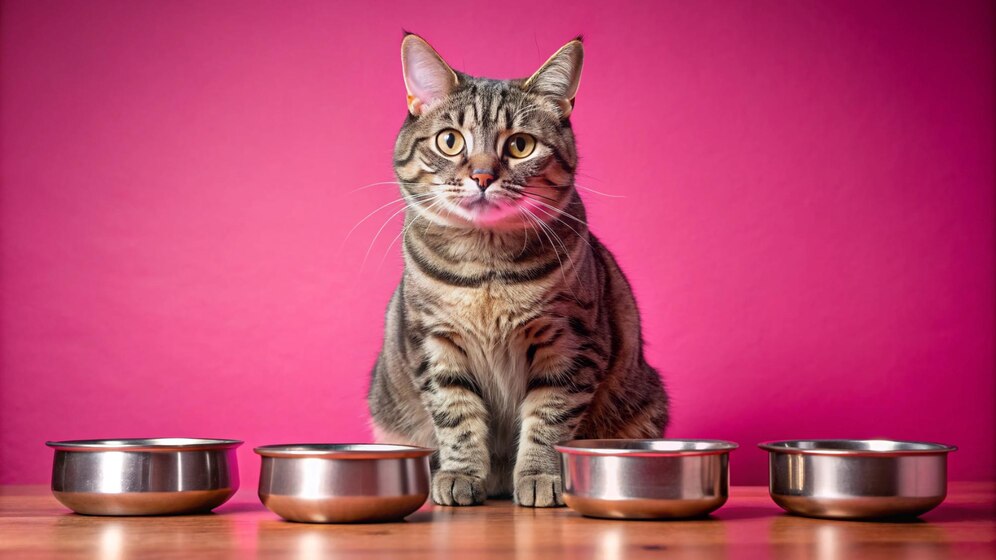Ever wondered if sharing a bite of Spam with your cat is safe? This salty, processed meat is a go-to for many, but is it something your cat should be tasting?
While cats can sometimes seem interested in our foods, especially meat-based ones, Spam may not be the harmless treat it appears to be. It’s loaded with ingredients that could pose risks for cats, and understanding those risks is essential for any cat lover. You want your cat to stay healthy and safe, so let’s dive into the effects of Spam on cats.
Read on to find out why Spam might not be the best choice for your cat’s diet and discover healthier alternatives that are just as tempting for your cat.
Can Cats Eat Spam?
Spam is one of those human foods that cats might beg for, but it’s not a recommended treat for your cat. While cats can technically eat small amounts of Spam without immediate harm, several concerns make it a poor choice for your pet’s diet.
The biggest issue is its extremely high sodium content, which can lead to dehydration and put unnecessary strain on your cat’s kidneys, especially in older cats or those with existing health conditions.
The processed meat contains various preservatives, nitrates, and often seasonings like garlic or onion powder, which are toxic to cats. These ingredients, combined with Spam’s high fat content, can cause digestive upset, pancreatitis, and contribute to unhealthy weight gain.
Is Spam Safe for Cats?
Spam is not toxic to cats in small amounts, but it’s generally not recommended. Spam contains high levels of salt, preservatives, and spices, which cats are not well-equipped to process. These additives can lead to stomach upset, dehydration, and even long-term health issues if consumed regularly. Cats naturally require a diet focused on high-quality, unprocessed protein sources without added salt or preservatives. Read Can Cats Eat Onions? A Deadly Threat
Why is Spam Harmful for Cats?
The primary concerns with Spam are its high sodium content and unhealthy additives. Here’s a breakdown of the main ingredients and why they may not be suitable for cats: Read Can Cats Eat Chocolate?
- Salt: Spam contains around 790 mg of sodium per serving. A cat’s daily salt requirement is much lower than a human’s, and excessive salt can lead to dehydration, increased blood pressure, and, in severe cases, salt toxicity.
- Preservatives and Spices: Spam often contains preservatives and flavoring agents that are unnecessary and potentially harmful to cats. Additives like nitrates can be difficult for cats to process and might cause digestive upset.
- Fat Content: Spam is relatively high in fat, which can lead to obesity and other health issues if consumed frequently.
Signs of Potential Issues in Cats After Eating Spam
If a cat has ingested a small amount of Spam, they may experience mild symptoms like stomach upset or vomiting. However, if a larger quantity was consumed, or if Spam becomes a regular part of their diet, cats may develop symptoms of salt toxicity, which include:
- Excessive thirst
- Lethargy
- Vomiting or diarrhea
- Coordination issues
- Seizures (in extreme cases)
What to Do If Your Cat Eats Spam
If your cat has eaten a small bite of Spam, they’ll likely be fine, but monitor for any symptoms of digestive upset or dehydration, like drinking more water than usual. If you’re concerned or if your cat ate a large amount of Spam, it’s best to contact a veterinarian. Read Can Cats Eat Kale? Is Kale Safe for Cats?
Alternatives to Spam for Cats
For cats that enjoy the taste of meat, there are safer, healthier options:
- Canned Tuna
- Cooked Chicken
- Fish
- Commercial Cat Treats
- Homemade Cat Food
- Dehydrated or Freeze-Dried Raw Food
Prevention Tips
To avoid future issues, keep processed foods like Spam stored securely away from curious cats. If your cat frequently shows interest in your food, offering them safe, cat-friendly snacks may help.
Read further
Why Is My Cat Pooping Outside the Litter Box?



